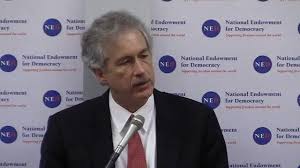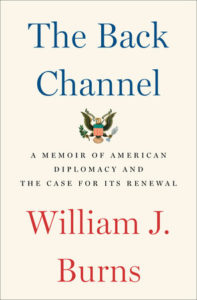 A revival of diplomacy will facilitate democratic renewal, a leading diplomat contends.
A revival of diplomacy will facilitate democratic renewal, a leading diplomat contends.
The liberal order that the United States had built and led after World War II would, we hoped, draw into its embrace the former Soviet empire, as well as the postcolonial world for which both sides had competed, notes William J. Burns, President of the Carnegie Endowment for International Peace and the author of The Back Channel: A Memoir of American Diplomacy and the Case for Its Renewal (Random House, 2019).
 The triumphalism of that heady era was nevertheless tempered by some sober realizations, he writes for Foreign Affairs:
The triumphalism of that heady era was nevertheless tempered by some sober realizations, he writes for Foreign Affairs:
As I wrote in a transition memorandum for incoming Secretary of State Warren Christopher at the beginning of 1993, “alongside the globalization of the world economy, the international political system is tilting schizophrenically toward greater fragmentation.” Victory in the Cold War had stimulated a surge of democratic optimism, but “it has not ended history or brought us to the brink of ideological conformity.” Democracies that failed to produce economic and political results would falter. And while it was true that for the first time in half a century, the United States didn’t have a global military adversary, it was “entirely conceivable that a return to authoritarianism in Russia or an aggressively hostile China could revive such a global threat.”
“Policymakers have to do a better job of showing that smart diplomacy begins at home, in a strong political and economic system, and ends there, too—in better jobs, more prosperity, a healthier climate, and greater security,” adds Burns, a National Endowment for Democracy board member and a career diplomat in the U.S. State Department for 33 years, serving as U.S. Deputy Secretary of State from 2011 to 2014.
It will be a long time before the U.S. and Russia will reach a new normal in their relationship. The most important thing is that they keep their current confrontation cold, just as they managed with the previous one, argues Carnegie analyst Dmitri Trenin.
Check out the resources on public diplomacy compiled by Bruce Gregory at George Washington University’s Institute for Public Diplomacy and Global Communication.







